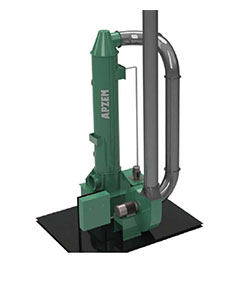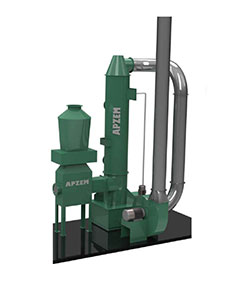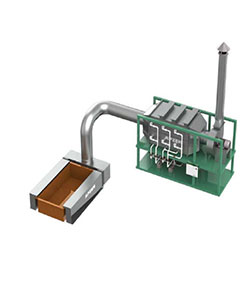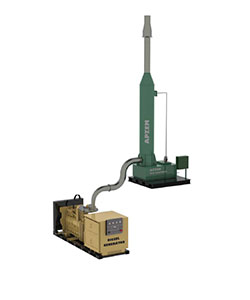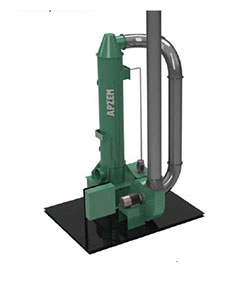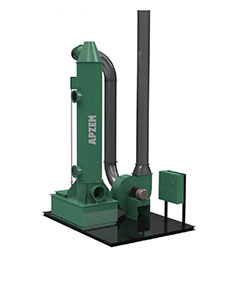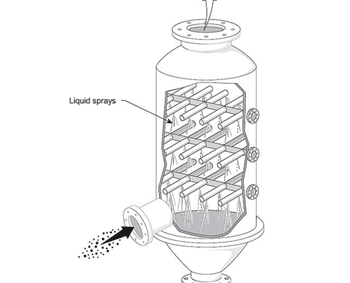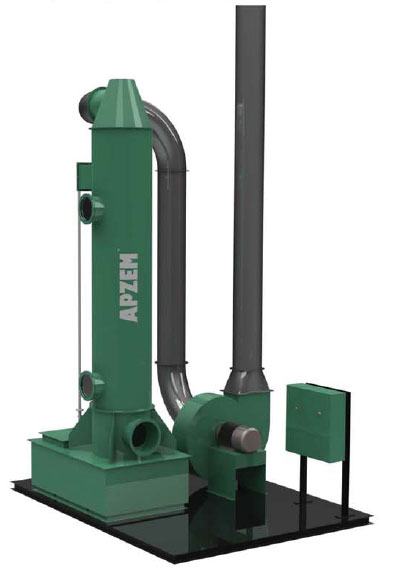Diesel Scrubber
Product Description
Working
Apzem uses catalytic technology to control the pollutants in exhaust emission and it makes the air risk-free to breathe. This catalytic technology eliminates the harmful emission by collecting diesel particles and burning off harmful pollutants.
The oxidation of harmful pollutants from diesel engines
Carbon Monoxide: 2CO+O2 -> 2CO2
Hydrocarbons: HC+O2->H2O
Aldehydes: HCHO+O2->CO2+H2O
Particulate Matter: C (soot)+O2->CO
For controlling Nox, selective catalytic reduction (SCR) technique is involved in emission reduction. In this technique, the exhaust emission is mixed with ammonia before passing through a layer of special catalyst a temperature between 30 and 400C, where by NOx is reduced to N2 and H2O the reaction is as follows:
4NO+4NH3+O2->4N2+6H2O
6NO2+8NH3->7N2+12H2O
Contaminants Removed
- H2S , HCl , HF , HBr
- HCN ,HNO3 , NH3
- Formic acid , Chromic acid
- SO2 , Cl2, F2, Br2 , BCl3, BF3
- Formaldehyde , Ethylene compounds
- Soluble alcohols, acids
- VOCs And many others
Features of Diesel Scrubber
- Easily installation and low maintenance
- High Quality Catalytic coating
- Low Exhaust gas out, high operating efficiency
Applications
- Mining Operation
- Construction Places
- Tunnels
- Shipping Industries
- Power generation equipment’s
- Power plants
Other Technical Details
- Contaminant solubility
- Vapor pressures
- Wash liquid flow rate
- Liquid to gas ratio
- Packing chamber height, diameter, and volume
- Packing media type and size
- Chemical additives
- pH control
- Precipitation of reaction products
- Multiple solution scrubbing
- Required scrubbing stages
- Pressure drop across packing
- Materials of construction
- Site requirements
- Centrifugal Blower,
- Spiral Ducts,
- Flexible duct,
- Suction hoods,
- Magnahelic gauge,
- Packings
- PH meter
- Water Level indicator & controller
- Pump etc..
Certification : All Apzem Products are designed to comply with ACGIH and OSHA standards as well as local PCB Standards.
Warranty : All Apzem Products are minimum one year waranted for performance and quality.
